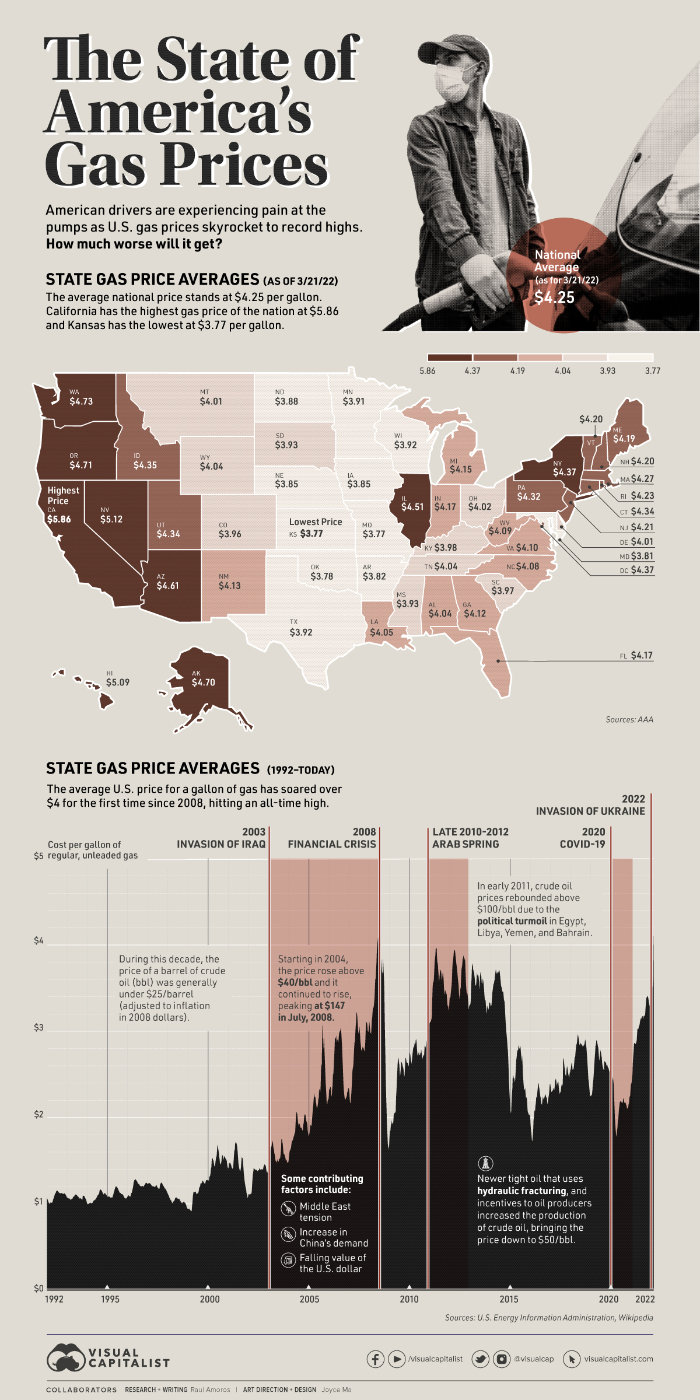One month of war in Ukraine
Ukraine is holding off Russia. Strategic neighborhoods of Kyiv are back under Ukrainian control, while battle still rages in the port city of Mariupol. Mariupol is a strategic target that would allow Russian forces to create a corridor between Crimea and Donbas, as well as impact Ukraine’s economy. Some fear that the lack of progress by Russian forces could cause Putin to escalate his tactics, although NATO secretary-general thinks it’s unlikely there will be a full-fledged war between Russia and NATO. Fear of escalation includes the use of chemical weapons. Putin’s spokesman is not ruling out that Moscow could use nuclear weapons if Russia faced an ‘existential threat’, but the White House is preparing for such escalations.
The FBI warns of incoming cyberattacks on the energy sector. So far there is evidence of preparatory activity, but not of any specific cyberattack. The White House released a list of suggested security actions for companies to take, and experts suggest that individuals take similar precautions. Cybersecurity CEO believes ransomware attacks could continue in response to sanctions on Russia. BlackEnergy, NotPetya, and Colonial Pipeline were some of the worst cyber attacks the West suffered recently.
Some things you can do to prepare:
- Turn on Two-Factor Authentication (2FA)
- Use a password manager to create stronger passwords
- Keep hard copies of important documents
- Store water, and have a backup power bank or generator
Chernobyl radiation monitoring lab destroyed by Russia. Samples of radionuclides—unstable atoms that can emit high levels of radiation—had been removed from the lab. Chernobyl workers can’t get to work due to shelling:
#Ukraine informed the IAEA today that Russian forces were shelling Ukrainian checkpoints in Slavutych where many people working at the nearby #Chornobyl Nuclear Power Plant live, putting them at risk and preventing further rotation of personnel. https://t.co/xSO4oUsjEI pic.twitter.com/r0ti7N7Yhh
— IAEA – International Atomic Energy Agency ⚛️ (@iaeaorg) March 24, 2022
NATO will send more troops to Slovakia, Hungaria, Romania, and Poland. Belarus and former Central African Republic (CAR) rebels could join Russia against Ukraine.
The U.S. formally declared that Russia committed war crimes. Biden also supports expelling Russia from G20.
Amazon converted a warehouse in Slovakia into a humanitarian hub to help Ukrainian refugees. Ukrainian tech publications pivot to provide war-related coverage and survival advice.
A month of war in photos. And a timeline.
Supply chain/Economy
Traders warn of looming global diesel shortage. Canada says it can help boost energy supplies.
Americans are facing higher rent, gas, and electric bills. Home prices rose 15% in February from a year ago. The federal government might offer stimulus payments or rebate checks to help with high gas prices.
The UK is facing its biggest drop in living standards on record. The government plans to cut taxes on wages and fuel to help with inflation.
Mapping all-time high gas prices in America:

Egypt fixes bread prices amid wheat shortage. Egypt is the biggest wheat importer in the world.
Africa’s richest man opens the world’s second-largest fertilizer plant. He is also due to open a 650,000 barrels per day oil refinery.
The US government has invested $5M into a battery manufacturing program in West Virginia.
U.S. weekly jobless claims fell to 187,000 last week, the lowest since 1969.
Extreme weather/Climate
The UN is planning a worldwide extreme weather early warning system. The project is to be completed within five years.
FEMA announced a $60 million grant to help homeowners affected by Hurricane Ida. The Swift Current initiative is intended to help homeowners retrofit their homes, relocate, or allow local and state governments to buy a home and demolish it if it has been flooded too many times.
The ozone layer is set to recover by 2060. A great climate success story, but wildfires could slow down the progress.
A recent study shows that the Amazon rainforest is nearing a tipping point to becoming a savannah. Three-quarters of the rainforest is already unable to recover from droughts, logging, and fires. The rainforest is crucial to the health of the earth because of its biodiversity and its ability to capture carbon, and influence weather patterns.
Climate change is intensifying El Nino and La Nina patterns, which in turn drive extreme weather events in both hemispheres.
An F-3 tornado tore through New Orleans and killed one. It was the second-strongest tornado on record for the area. The South is apparently getting more killer tornadoes at night.
A Louisiana woman filmed an EF-3 tornado as it passed near her home in Arabi, just east of New Orleans, earlier this week.
Authorities confirmed one death as a result of the damaging twister. pic.twitter.com/qWlhPUbwjZ
— ABC News (@ABC) March 24, 2022
Texas wildfires have burned more than 108,000 acres in the past week. Spring is a normal time for wildfires in Texas, but these fires are unusual in their speed and intensity, validating a global trend.
A Florida bill would drastically cut financial incentives for installing rooftop solar panels. On the other hand, New York state is now the country’s largest community solar market. Here’s a community solar explainer.
The rest
The BA.2 variant now accounts for a third of daily cases in the US:
CDC estimates that BA.2 accounts for 35% of daily coronavirus cases in the U.S., up from 23% last week
— BNO News (@BNOFeed) March 23, 2022
Moderna announced that its vaccine works well for children under 6, and is seeking FDA approval. There is also growing evidence that vaccines lower the chance of getting long Covid.
The Gates Foundation and partners are investing $90 million to develop drugs for future pandemics.
High cholesterol and blood sugar in your 30s might raise the risk of Alzheimer’s later on in life.
Idaho, Arizona, and Oklahoma are passing more restrictive abortion laws. Florida did the same a few weeks ago.
Wyoming has an app where people can report roadkill so others can harvest the animals.
Interest in prepping is rising in the UK. Nice to see level-headed and rational coverage, too.
A biorefinery in Istanbul turns algae into bio-jet fuel and feedstocks. The refinery is carbon negative because algae absorb CO2 as plants do, but when processed, more carbon is trapped in the final product than what is actually released during production. Algae also absorb CO2 much faster and in greater amounts than trees.
A wastewater facility in Oregon is turning human waste into electricity that directly supplies the facility. This is also supposed to make the treatment plant more resilient in the case of natural disasters.
The UK is enforcing “chicken lockdown” and that’s why you can’t find free-range eggs in the UK. To limit exposure to wild birds and the flu, free-range farmers are forced to keep their chickens indoors, hence losing their free-range status. France is also having to take extreme measures:
https://twitter.com/ai6yrham/status/1506801789038780419?s=20&t=E631j5xM8bdS_fzK8DTQIQ
Two young brothers survived in the Amazon rainforest alone for four weeks. The boys got lost during the rain season, which made search efforts more complicated. They claim they didn’t eat anything and drank only rainwater, but are now expected to make full recovery.
North Korea tested its first intercontinental ballistic missile since 2017.

You are reporting the comment """ by on